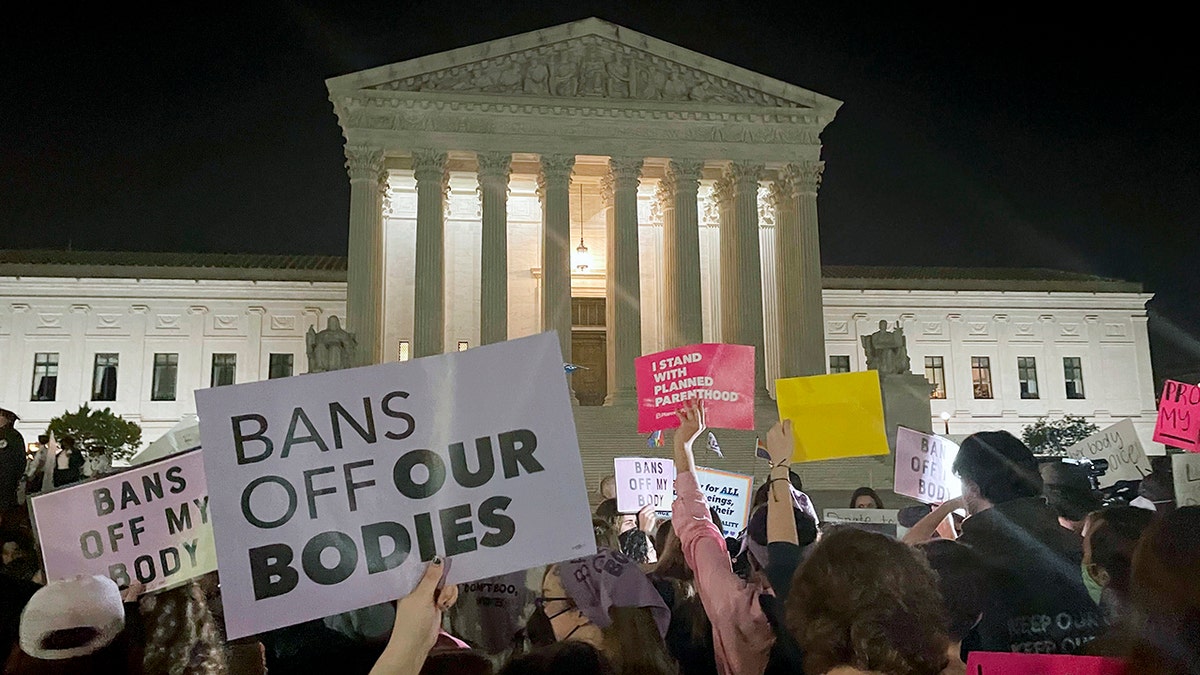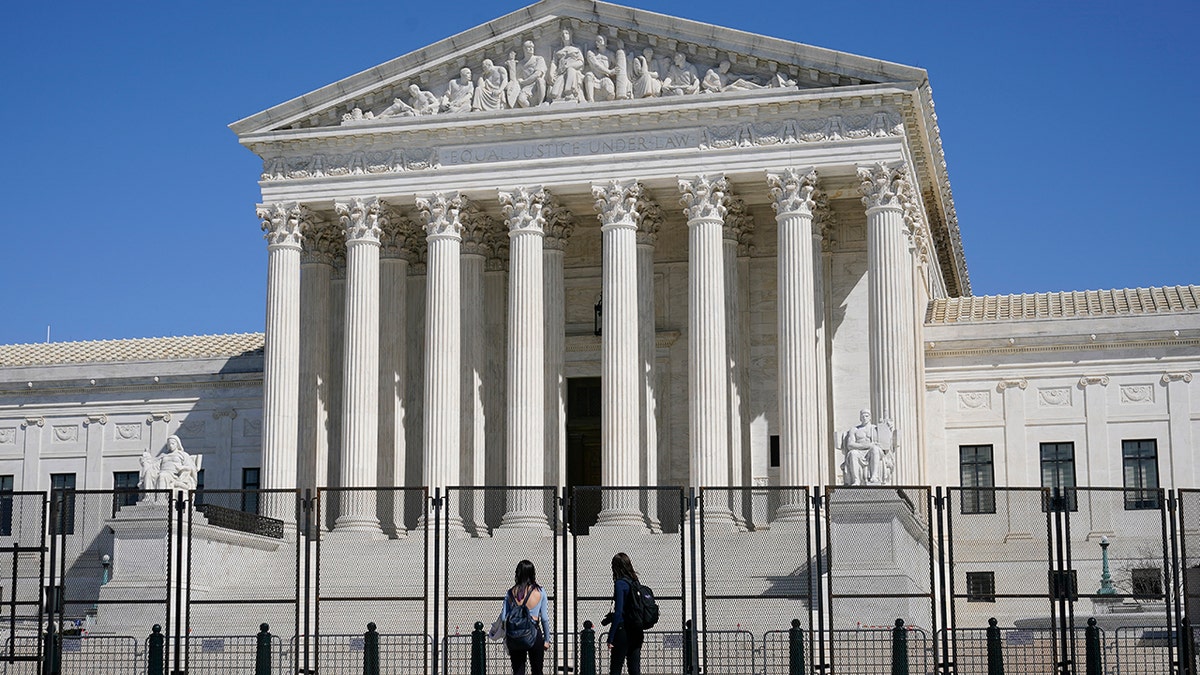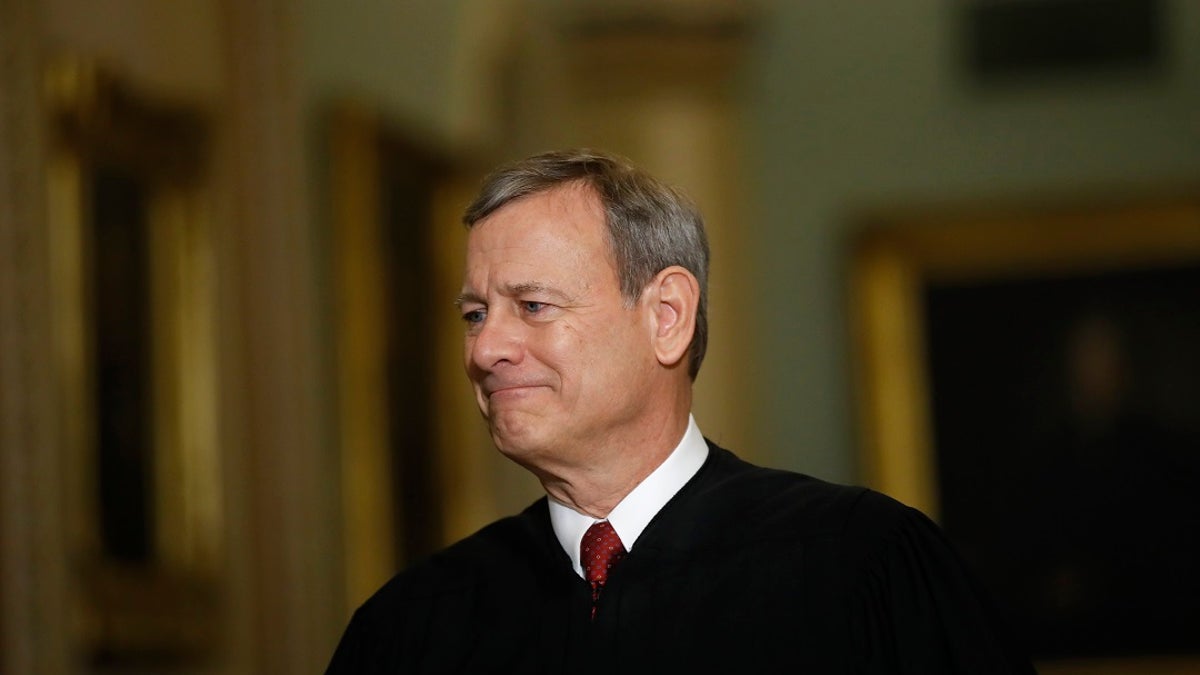Severino: Leak from Supreme Court ‘absolutely jaw-dropping’
Judicial Crisis Network President Carrie Severino on leak of draft opinion suggesting Supreme Court would move to overturn Roe v. Wade.
The leak of Supreme Court Justice Samuel Alito's draft majority opinion, which sets the stage for the court to overturn Roe v. Wade and Planned Parenthood v. Casey, elicited shock from longtime observers of the court, which has rarely had information about its deliberations leak to the public.
"The alleged leak of the opinion in Dobbs v. Jackson Women’s Health Organization is nothing short of breathtaking," legal analyst Jonathan Turley said on Twitter Monday. "It would constitute one of the greatest breaches of security in the history of the Court."

A crowd of people gather outside the Supreme Court, Monday night, May 2, 2022 in Washington following reports of a leaked draft opinion by the court overturning Roe v. Wade. (AP Photo/Anna Johnson)
The leaked document was shared with journalists at Politico, who published the details of the draft opinion Monday evening. The outlet claimed that "no draft decision in the modern history of the court has been disclosed publicly while a case was still pending," a nod to the rarity of such breaches.
While Turley's shock at the leaked document was shared by many, it is not the first time sensitive information about Supreme Court deliberations has leaked.
The original Roe ruling itself was subject to multiple leaks during deliberations, with the first leak coming in the form of a memo on internal deliberations that was leaked to the Washington Post.
After Roe was reheard so that newly confirmed Justices Lewis Powell and William Rehnquist could sit on the bench for the landmark case, the ultimate decision in the case was leaked to Time Magazine before it was announced. Time published the court's decision a few hours before the court's decision was made public, a move that infuriated Chief Justice Warren Burger.

Supreme Court building from behind security fencing on Capitol Hill.
Burger wrote to all justices demanding that the source of the leak be found, but the leak would not be the first or the last time sensitive court information found its way into the hands of the press.
In the mid-19th Century, the New York Tribune published three Supreme Court opinions before they were officially released. The first came in 1852 when the publication released the results of Pennsylvania v. Wheeling and Belmont Bridge Company ten days before the official decision was released. When that same case came back to the court a few years later, the Tribune again published their decision before the court was able to announce it.
The Tribune was at it again later that year, publishing details on deliberations in the infamous Case Dred Scott v. John F. A. Sandford as they occurred.
In a more recent case, CBS News was able to get information on deliberations that showed Chief Justice John Roberts changed his mind in the landmark National Federation of Independent Business v. Sebelius that upheld most provisions in the Affordable Care Act, including the controversial individual mandate.
Roberts was initially going to vote with his conservative colleagues to strike down the law, but had a last minute change of heart and ruled that the penalty for not carrying insurance was actually a tax, keeping the mandate in place.

Chief Justice of the United States John Roberts
CLICK HERE TO GET THE FOX NEWS APP
But Turley believes the leak of a draft majority opinion represents a new low in the court's history, calling it a "breach of the most fundamental obligations and traditions of the Court."
"This draft is from February and the majority can shift on such opinions," he added. "However, the act of leaking such a draft opinion ranks as an original sin for judicial ethics."













































